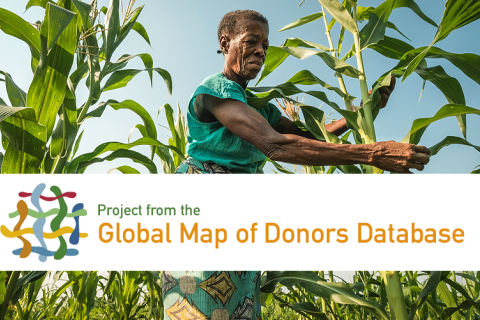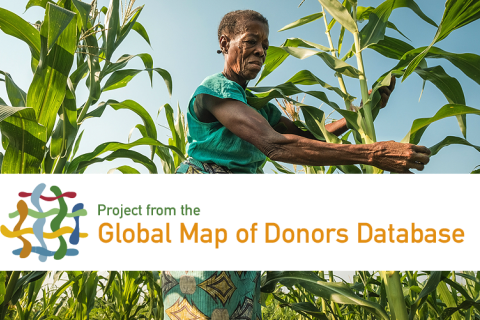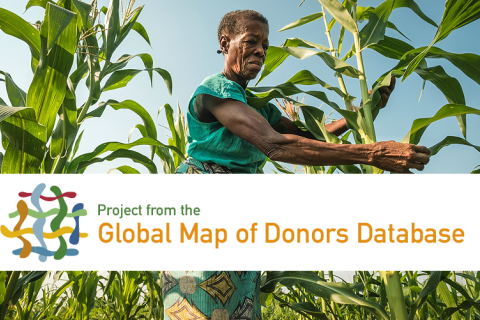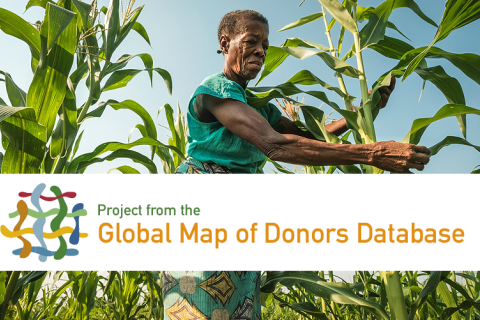The Global Donor Platform for Rural Development is a network of 38 bilateral and multilateral donors, international financing institutions, intergovernmental organisations and development agencies.
Members share a common vision that agriculture and rural development is central to poverty reduction, and a conviction that sustainable and efficient development requires a coordinated global approach.
Following years of relative decline in public investment in the sector, the Platform was created in 2003 to increase and improve the quality of development assistance in agriculture, rural development and food security.
// Agriculture is the key to poverty reduction
Agriculture, rural development, and food security provide the best opportunity for donors and partner country governments to leverage their efforts in the fight against poverty.
However, the potential of agriculture, rural development and food security to reduce poverty is poorly understood and underestimated.
Cutting-edge knowledge of these issues is often scattered among organisations, leading to competition, duplication of efforts, and delays in the uptake of best practices.
// Addressing aid effectiveness
Therefore the Platform promotes the principles of the Paris Declaration on Aid Effectiveness, the Accra Agenda for Action for sustainable outcomes on the ground, and the Busan Global Partnership for Effective Development Cooperation.
Increasing aid to agriculture and rural development is not enough. Donors must work together to maximise development impact.
// Adding value
The Platform adds value to its members’ efforts by facilitating the exchange of their development know-how, which consolidates into a robust knowledge base for joint advocacy work.
Working with the Platform, members are searching for new ways to improve the impact of aid in agriculture and rural development.
- An increased share of official development assistance going towards rural development
- Measurable progress in the implementation of aid effectiveness principles
- Greater use of programme-based and sector-wide approaches
- More sustainable support to ARD by member agencies
// Vision
The Platform endorses and works towards the common objectives of its member institutions to support the reduction of poverty in developing countries and enhance sustainable economic growth in rural areas.
Its vision is to be a collective, recognised and influential voice, adding value to and reinforcing the goals of aid effectiveness in the agricultural and rural development strategies and actions of member organisations in support of partner countries.
// Evaluation
Between August and October 2014, the Global Donor Platform for Rural Development underwent an Evaluation. The evaluators interviewed across board focal points (FPs) of member organisations, partner institutions, staff of the secretariat and key agricultural and rural development experts from different organisations involved in the Platform initiatives. KIT reviewed Platform documentation of the past 10 years, online resources and services to complete the assessment.
According to the report, the change in overall global development objectives of the Post-2015 agenda and its sustainable development goals (SDG) will only reiterate the relevance of the Platform’s work in coordinating donor activities. Agriculture and rural development are incorporated in many of the SDGs. The targeted development of appropriate policies and innovative strategies will depend on increased, cross-sectoral cooperation which the Platform stands for. The achievement of the Platform’s objectives of advocacy, knowledge sharing and network facilitation functions remains to be a crucial contribution to agriculture and rural development.
Members:
Resources
Displaying 6 - 10 of 809Exploring biodiversity in a metropolitan area in the Mediterranean region: The urban and suburban flora of Rome (Italy)
This work provides an overview of plant diversity in the municipality of Rome (Italy) through an assessment of the flora in urban and suburban sectors of the city. It is aimed at providing the knowledge required to support proactive action for plant conservation. On the basis of a literature-derived catalogue and of an extensive survey campaign, the flora was investigated in terms of conservation interest; habitat types and locations that require protection measures were identified according to the occurrence of valuable native plants.
Meridia
General
Based in the Netherlands and Ghana, Meridia is an end-to-end solution for land and property documentation for individuals and communities in emerging markets, where accurate maps and effective land administration systems do not often exist. Meridia’s platform combines widely available technology with a carefully trained workforce and clear understanding of local legal and administrative systems. Since launching in 2015, the company has worked with smallholder farmers, homeowners, commodity buyers, land investors, and governments to clarify land and property boundaries and leverage its economic potential. The company has developed an app that combines GPS-based survey data with basic administrative details and an oral history of how the land came to be acquired and owned. Omidyar Network is funding Meridia to assist in developing the organization into a sustainable and replicable model and to demonstrate the value placed on property rights by the people who need them most.
Micro Aerial Projects LLC
General
Micro Aerial Projects LLC’s mission is to identify sustainable and appropriate civilian geospatial applications of unmanned or remotely controlled aerial vehicles and to support and provide efficient, cost effective, safe and responsible geo-spatial solutions. Micro Aerial Projects has trained, advised and provided Unmanned Aerial Vehicle (UAV) solutions for purposes of topographical and cadastral land surveys, high resolution mapping, resettlement action plans, and agricultural monitoring among many others. Micro Aerial Projects aims to establish a body of competence, promote policy reform, and increase awareness of unmanned aerial vehicles (UAV) mapping potential. Omidyar Network is supporting Micro Aerial Projects to pioneer drone mapping for cadastral surveys in three markets – the Philippines, Colombia, and Ghana. Micro Aerial Projects will create localized capacity and build evidence in each country for the effective utilization of drones for property mapping. Micro Aerial Projects hopes to use evidence from pilot projects to demonstrate how drones can be deployed for cadastral surveying on a global scale.
Open Imagery Network (Radiant)
General
Radiant provides a shared infrastructure for open access to remotely sensed imagery, spatial data, and technology tools to support global development. The platform aspires to fuel innovation by organizations and entrepreneurs in location-based analytics across the globe for property rights as well as adjacent issue areas, such as land use, agriculture and food security, and health. Omidyar Network co-funded Radiant’s launch with the Bill & Melinda Gates Foundation to provide the world with open access to geospatial data.






